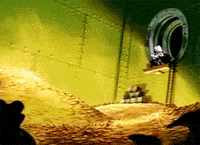The nature of money
In this world of turmoil and uncertainty, with a fervent and fruitful discussion with my colleagues who are super into cryptocurrency, I finally make sense of something fundamental in human society. What is money and some fundamentals of economics.
What is money?
Throughout the history, money has taken various forms. Seashells for the polynesians, cocoa beans for the Aztecs, silver for east Asians, gold for the Romans. Gradually every sovereigns started minting their coins. Kingdoms and empires have all minted a lot of coins. In 11th century an innovation happened in the kingdom of Sung in east Asia. They have created the first paper currency, resulting into a budding capitalistic society only to be crushed by the Mongols. Many sovereigns have started to follow suits. At first most of them have been pegged to some metals or goods. And most sovereigns have chosen to back their paper currency with metals or goods that are precious. Almost a millenium passed by, another invention in money space: the US currency. It is a paper currency that is pegged to … nothing. Nothing tangible. A mere half a decade after the internet boom, now another innovation is happening in the money space: cryptocurrency. What do they all have in common? What makes a particular currency successful?
All of them are backed by confidence
So the fundamental function of money is to exchange for things that you want to acquire. It can be range from neccessities such as wheat and rice to luxuries like Lamborgini supercars or Gucci bags. Also it should be able to exchange for the same set of items in the future. Some would argue that there is intrinsic value in the material that back the money up. Such as gold, silver, copper and platinum. But are those “preciousness” “intrinsic”? Let’s explore more.

Imagine you were a merchant on the silk road in the 10th century. You have had to pass through 10 sovereigns to go from Constantinople to Khumdan (today Xi’an). What would you bring as a currency to exchange for things you need on the journey? The coins from Romans? What if you were far away from Roman Empire? No one knew what does the coins represent and may very well refuse to accept them. The Roman coins in Tang empire would have no value other than the precious metals inside.
How about you brought along the coins from Tang empire? Good luck with that, becuase by that time Tang empire was a crumbling state. The coins would be useless in your next visit to Khumdan and all your hard work would be in vain.
So your best bet would be to bring some generic precious metals with you. as it would be the safest bet that you could change them back and forth when you were crossing borders, and you were less likely to suffer lost from sovereignty changes and political turmoils.
Also consider the Spanish and Portugese in the south America, they didn’t bring the currency in Aztecs and Incas - Cocoa back to Europe. Instead, they brought a building material - Gold. As gold can exchange for almost anything in the old world.
So it should be clear that the “preciousness” can be defined as the confidence of holders can exchange for things she wants to acquire. In another words, there is no intrinsic values in all material of money, other than the expectation of it can exchange for things holders want.
So we established the fundamental function of money. The fundamental function of money should be a medium for getting what holders want or need. From this an interesting feature of money immerses.
All currency is actually a marketplace
Every single currency is a marketplace. Each currency is based on the confidence to exchange for the things holders can buy. So in an isolated community, the currency will be whatever set by the community. And the set of products and services will be bounded by the community. Take RMB as an example. Using RMB, people in China can exchange for everything from rice and noodles to houses. But they will lack the access of technological talents. Things get complicated when we are in the real world with a lot of sovereigns and now cryptocurrency. All the exchange and volatility and all crazy graphs and data.

But fear not, after reading Disunited Nations from Peter Zeihan, I realized that as long as USA remains a major guaranteer of the maritime security and global trade, thus the confidence of the first world to access materials and technology of our current living standard, US dollars will be the medium of exchange. Until then, In God we trust. As this Wuhan coronavirus rampages around the world, there is a risk of USA is not up to the job to maintain the status quo. But that can be another post.
Ok so we understand the fundatmental nature of money and how money create a marketplace, either within the sovereigns (local currency) or within the globe (US dollars). A successful currency would always be efficient, diverse in resource and technology, and innovative.
This is my current understanding of money. What is the actionable implication? That’s my next question.
Feel free to CLS(comment, like and share) this.
Thanks James Cheuk and Victor for bouncing off idea with me.
